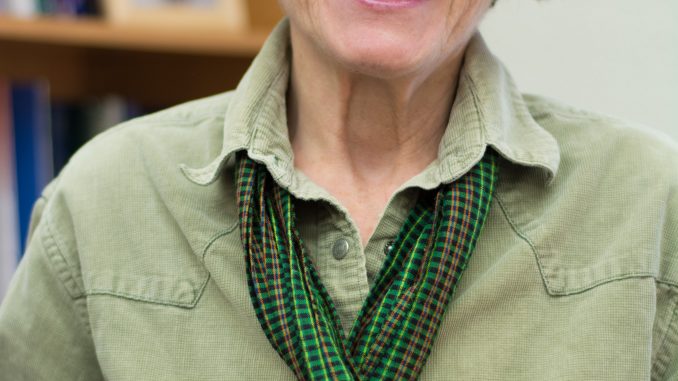
As a teacher in rural Virginia during the 1970s, Bernie Newman saw bright children falling behind in school due to unstable conditions at home. She knew she had to act.
“I saw these beautiful babies that were in families where … the mother was being beaten up by the partner or the children were being neglected,” Newman said. “It just made me feel like I had to learn more.”
Newman went on to earn her Ph.D. in social work from the University of Pittsburgh in 1985. Four years later, she became a social work professor at Temple.
Newman is currently the interim chair of the School of Social Work, and she researches issues faced by domestic violence survivors and people in the LGBTQ community — two groups she said are often overlooked. She also works as a clinical therapist at People “R” Us, a group home in North Philadelphia for children who can’t be placed in a regular foster home due to issues like substance use or mental health disorders.
Before the home opened its doors to 20 children in December 2015, Newman spent two years working with its founders to develop a therapeutic program to treat children who have dealt with sexual abuse, domestic violence and mental health disorders.

“The clock doesn’t matter to her, whoever is in front of her and meeting her at that moment is where she is,” said Melinda Moskal, the residential therapist at People “R” Us. “She’s sat with kids in the hospital all night, gone out of the way to make sure they get to talk to their parents on their birthday and made sure that their case manager was doing what they were supposed to be doing.”
Moskal, a 2014 master’s of social work alumna, had Newman as a professor and began working at the home when it opened.
“I always find myself looking to her, you know, when I just need a reminder of why I’m in this field and to see someone who really embraces the field of social work,” Moskal said.
Newman is currently analyzing the results of her most recent study, which explored new ways to treat post-traumatic stress disorder in domestic abuse survivors. Newman said she wants to develop a discussion-based approach as an alternative to conventional therapy for PTSD, which forces patients to confront their trauma without allowing them to heal at their own pace.
“I think it’s very hard for people to spread themselves out and to pay attention to all areas, [like] teaching, practice and research, but Bernie’s one of the people that does it and does it very well,” said Paul Dannenfelser, a social work instructor who has known Newman since 1994 and collaborated with her on the new study.
Her experiences growing up inspired her to study, teach and practice social work.
Newman said she always felt out of place as a Jewish girl growing up in Midland, Pennsylvania, a small town of about 2,600 people — especially in high school when she suffered from anorexia and struggled with her identity as a lesbian.
“I thought something was wrong with me, and I had all this energy that couldn’t be expressed,” she said. “I didn’t want other girls to grow up like that and I want young LGBT folks to feel good about themselves.”
Newman said homosexuality was still “taboo” and misunderstood in some parts of the United States when she was young. At 23 years old, she joined the gay rights movement by protesting in Washington D.C.
Since then, she has dedicated much of her professional life to improving social work care for LGBTQ people, including a collaboration with the Council on Social Work Education. The national organization encourages social work education programs to integrate comprehensive lessons about the LGBTQ community into social work curricula across the country.
The 2015 Supreme Court decision finding the Defense of Marriage Act unconstitutional was a major victory for Newman. She said she never expected it to happen during her lifetime, and after she spent 30 years with her partner Katherine Bezak and raised their son Eric together, the couple was finally married in August 2015.
“After working with someone who is very troubled, it’s wonderful to have someone like Katherine to come home to and support me when I’m taking some of it home with me,” Newman said.
Although she acknowledged fieldwork can be emotionally taxing, Newman said it’s important to keep moving forward. Next, she hopes to work more with transgender individuals.
“I know I don’t change very much, but to have at least some sense of not just sitting by and doing nothing is really important,” Newman said. “There’s lots of work to be done still.”
Carr Henry can be reached at carr.henry@temple.edu.


Be the first to comment